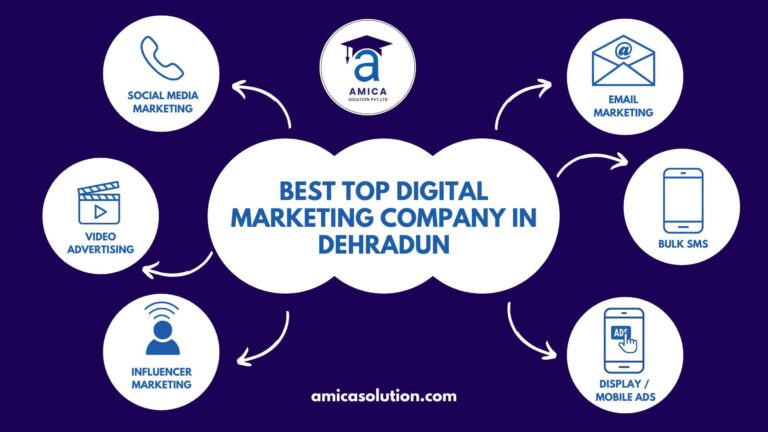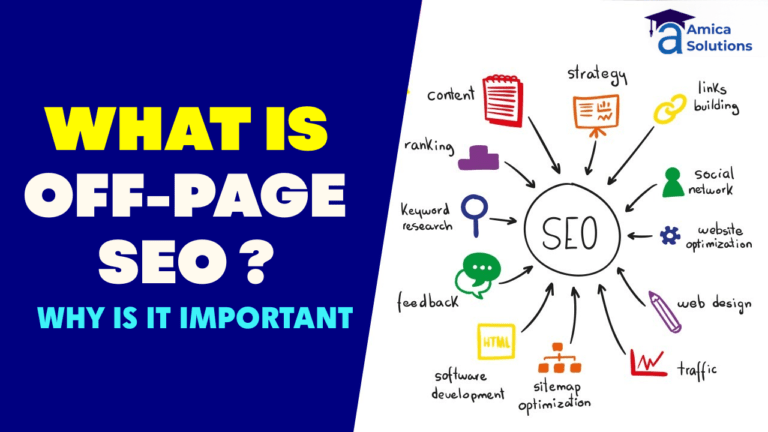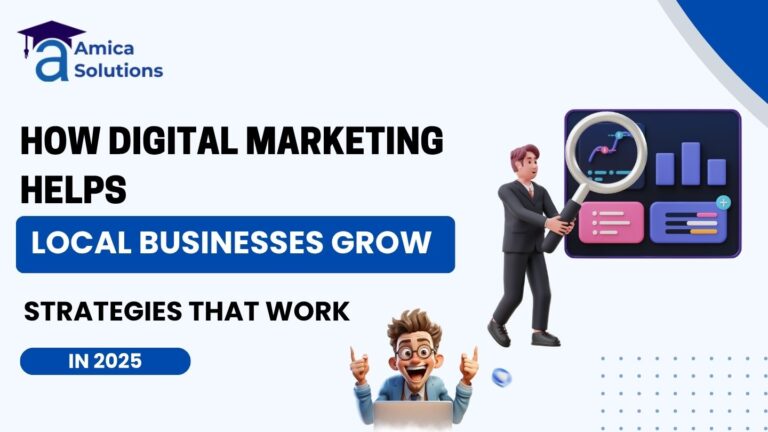
Best Top Digital Marketing Company in Dehradun
Best Top Digital Marketing Company in Dehradun The Search for a Premier Digital Marketing Service in Dehradun: Why It Matters

Here’s a wild one: According to Moz, backlinks are still one of Google’s top three ranking factors. Yup. Even in an age of AI and algorithms that can practically read your mind, what other websites say about you really matters. And that, my friend, is where off-page SEO jumps into the picture.
When you hear “SEO,” your brain probably leaps to meta tags, keyword stuffing (please don’t do this), or updating your blog titles. But that’s only half the battle. The other half happens outside your website.
In this guide, we’re gonna talk about what is off-page SEO and why is it important, especially if you’re just starting out or trying to figure out why your beautifully optimized pages still aren’t ranking.
So, off-page SEO… it’s basically all the stuff you do outside of your actual website to make search engines (and people) trust you more.
Think of it like street cred. Google wants to rank trustworthy sites higher, and one of the biggest ways it figures that out is by watching how the rest of the internet interacts with you. Backlinks, brand mentions, reviews, social shares—yep, all that jazz.
Here’s a quick comparison:
The reason people keep asking what is off-page SEO and why is it important is ‘cause it’s the part of SEO that’s harder to control—but super impactful.
Also Read: Best SEO Practice for 2025
You can build the most beautiful website ever… but if no one’s talking about it or linking to it? Google’s probably not gonna care. That’s the harsh truth. Here’s why off-page SEO really matters:
So yeah, if you’re still asking yourself what is off-page SEO and why is it important, the answer is pretty much: “It helps Google and people trust you more—and trust gets rewarded.”
Alright, so what goes into this mysterious off-page SEO mix? Glad you asked.
Backlinks (aka Inbound Links)
Social Media Engagement
While social shares aren’t a direct ranking factor, they help in other sneaky ways—like increasing your content’s reach and attracting backlinks.
Online Reviews & Reputation
Got a local biz? Then Google Reviews, Yelp, Trustpilot—they’re gold. Not only for SEO but for actual conversions too.
Brand Mentions
Even if no one links to you, just mentioning your brand online can boost your visibility and send trust signals to search engines. It’s called “implied linking.”
Guest Posting and Collaborations
Writing blog posts for other websites helps you earn links and reach new audiences. Two birds, one stone.
Content Syndication
Republish your content on Medium, LinkedIn, or Quora (with proper canonical tags, please). This spreads your content further and might even earn you some juicy links.
Let’s be honest, when people ask what is off-page SEO and why is it important, they usually mean: “How do I get backlinks without getting burned?” Here’s the thing—you need to earn links, not just build them. Some methods that still work in 2025:
Pro tip: Avoid buying backlinks or using PBNs (Private Blog Networks). Google’s smarter than you think—and penalties are painful.
Here’s the nerdy bit: Google has something called PageRank—it’s how they evaluate the quality and quantity of links to a page. Even though they don’t publicly show your PageRank anymore, it still exists behind the scenes.
Let’s say two sites both have solid content, but one has 50 backlinks from respected sites and the other has none. Guess who’s ranking first? The more credible sources link to you, the more Google trusts you. And trust = rankings.
There’s a reason SEO pros focus so much on backlinks when discussing what is off-page SEO and why is it important—because they move the needle a lot.
We’ve all been there—trying things that sound good but backfire later. Here’s what not to do:
Here’s how to actually win with off-page SEO in 2025 and beyond:
And honestly? Just be helpful. The web rewards people who genuinely share useful stuff.
Some tools to keep handy in your off-page SEO toolkit:
So… what is off-page SEO and why is it important? It’s your brand’s reputation, trust, and visibility in the wild world of the web. It’s not just about links—it’s about relationships, value, and consistency.
Google doesn’t just want to rank the “most optimized” site—it wants to rank the most trusted one. And off-page SEO is how you prove that trust. Your next move? Focus on creating things worth talking about—and then make sure people are actually talking about them. Need help? Let’s brainstorm some backlink ideas together.

Best Top Digital Marketing Company in Dehradun The Search for a Premier Digital Marketing Service in Dehradun: Why It Matters

What Is Off-Page SEO and Why Is It Important? (Beginner’s Guide to Building Authority & Rankings) Here’s a wild one:

How Digital Marketing Helps Local Businesses Grow: Strategies That Work in 2025 Let’s be honest—running a local business today is

SEO vs. Google Ads: What’s the Better Long-Term Strategy? You’ve probably heard this debate a hundred times already: SEO vs.

Best SEO Practice for 2025: Future-Proof Strategies to Boost Your Rankings Let’s be honest — SEO isn’t what it used

Top Social Media Statistics Every Marketer Should Know in 2025 Social media has become an indispensable pillar of modern marketing.